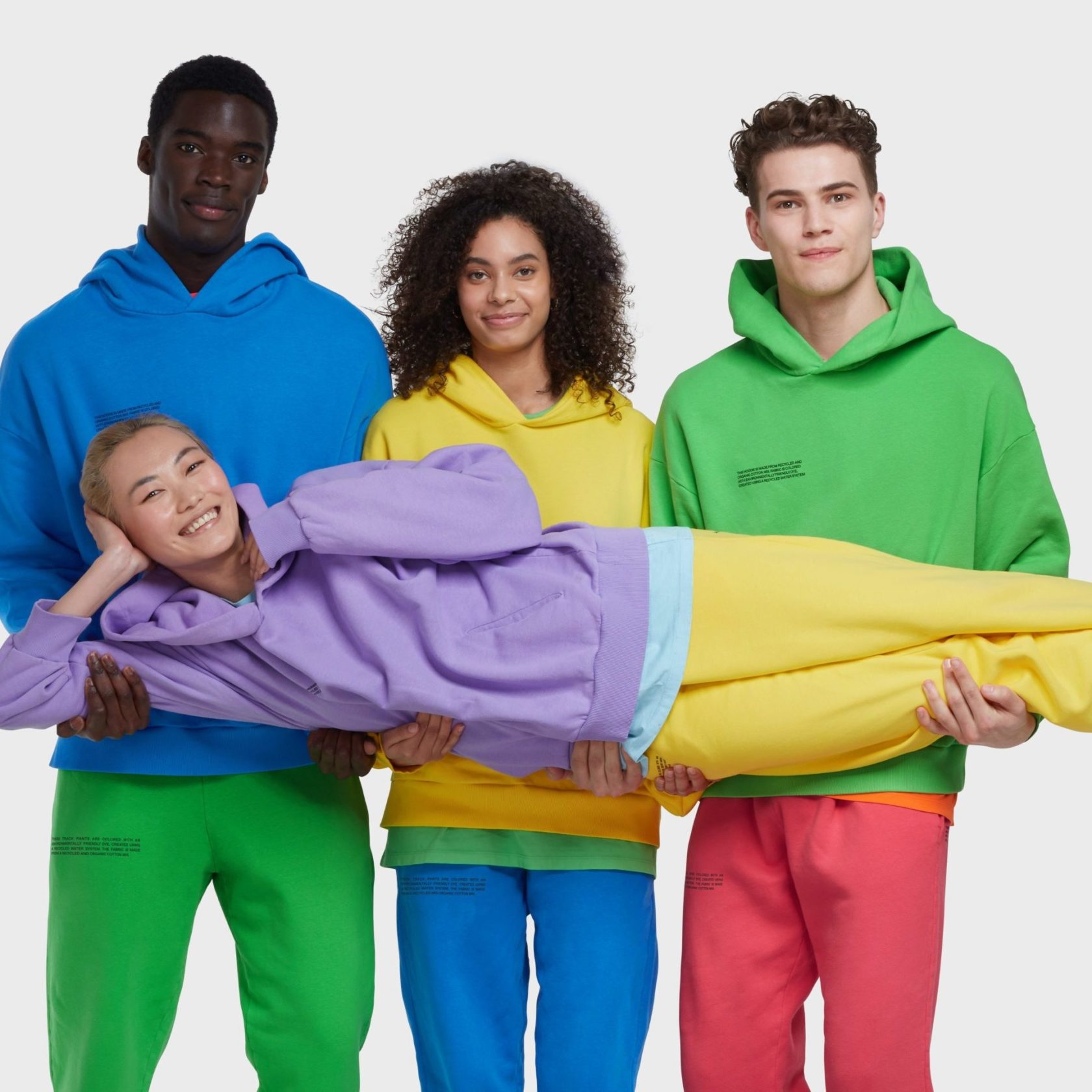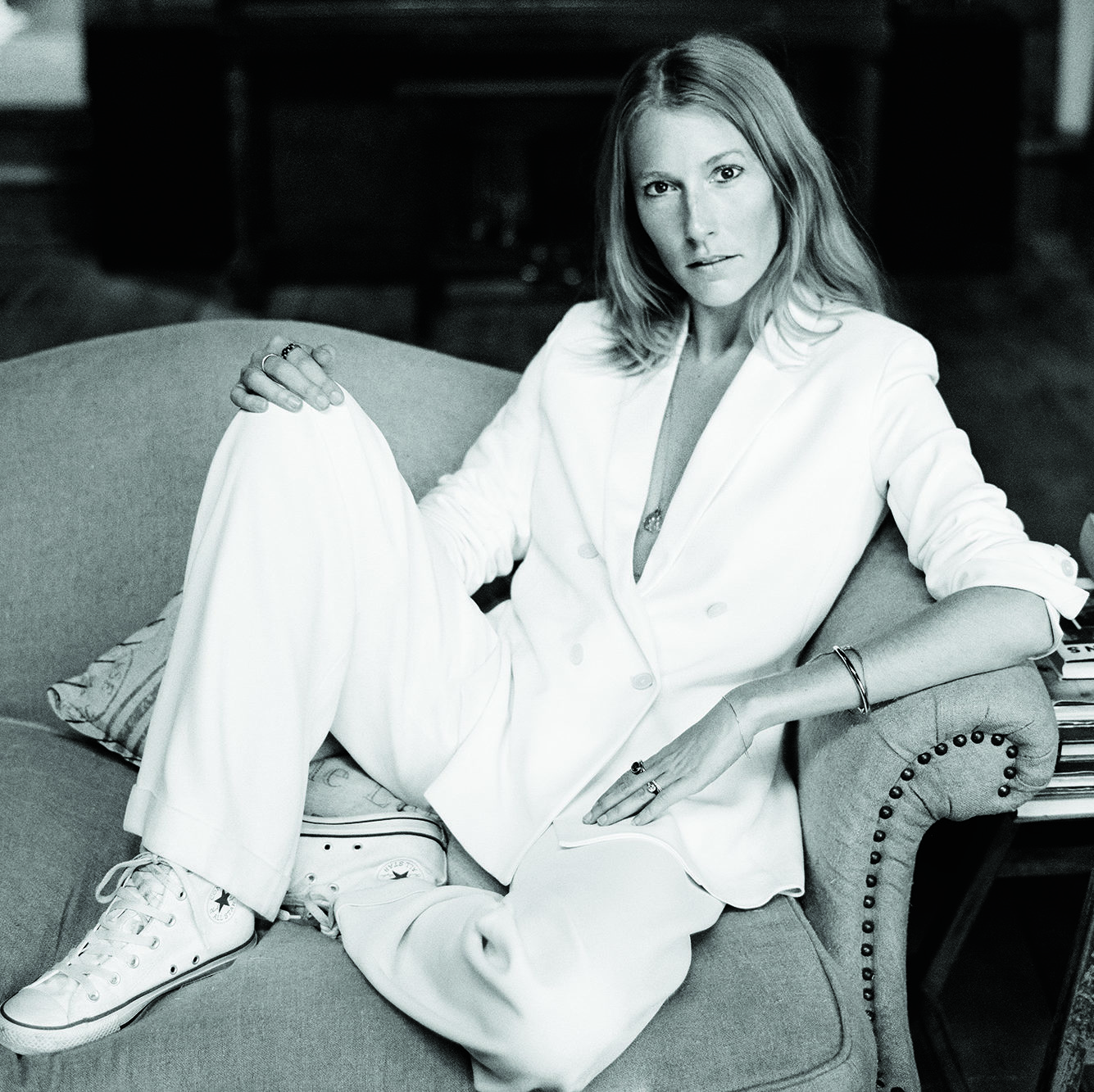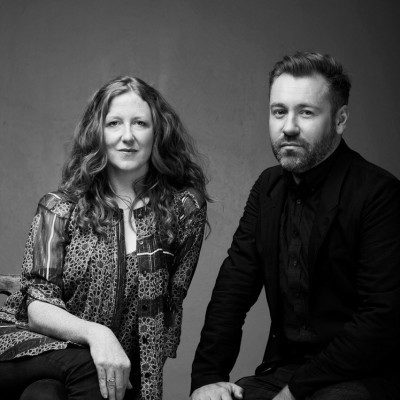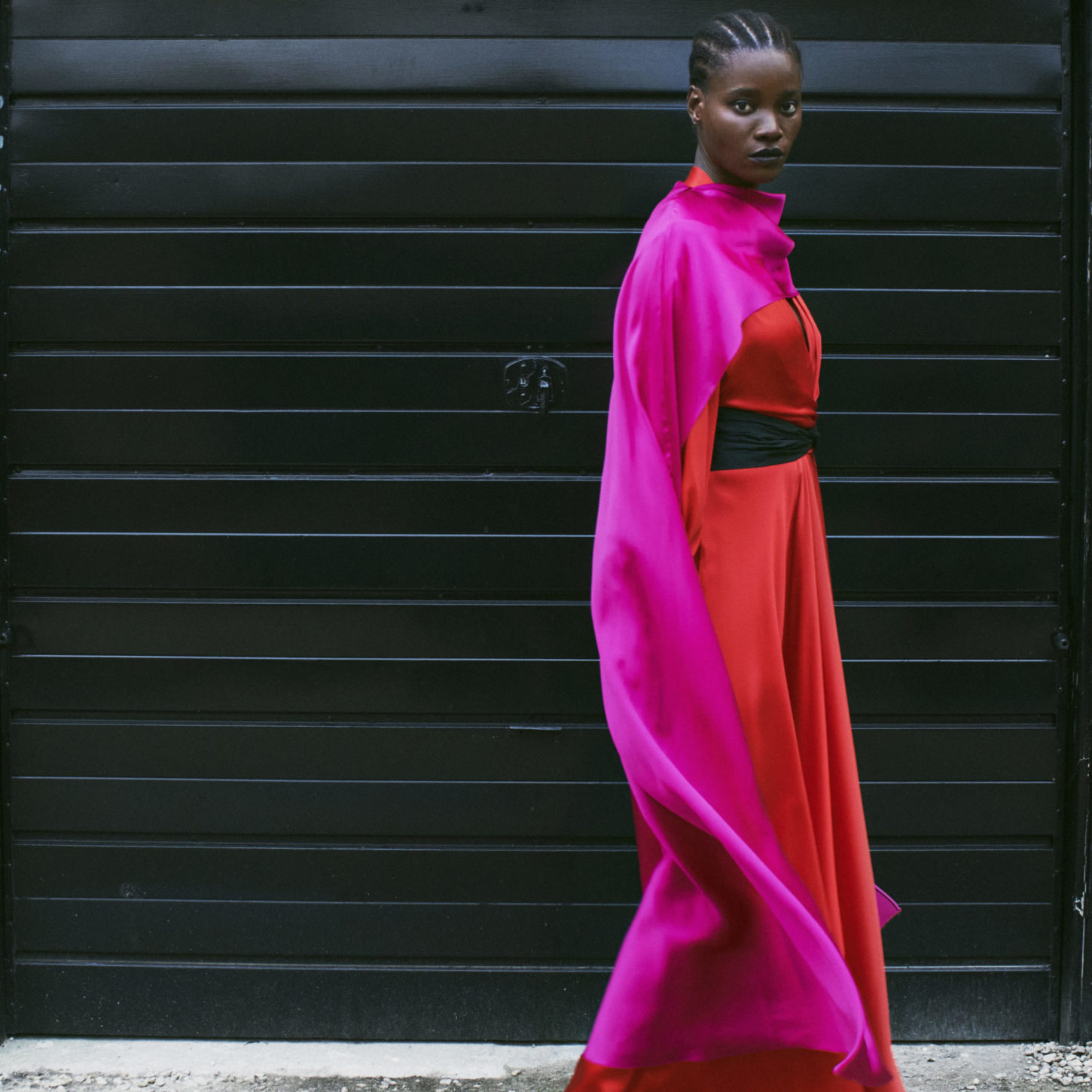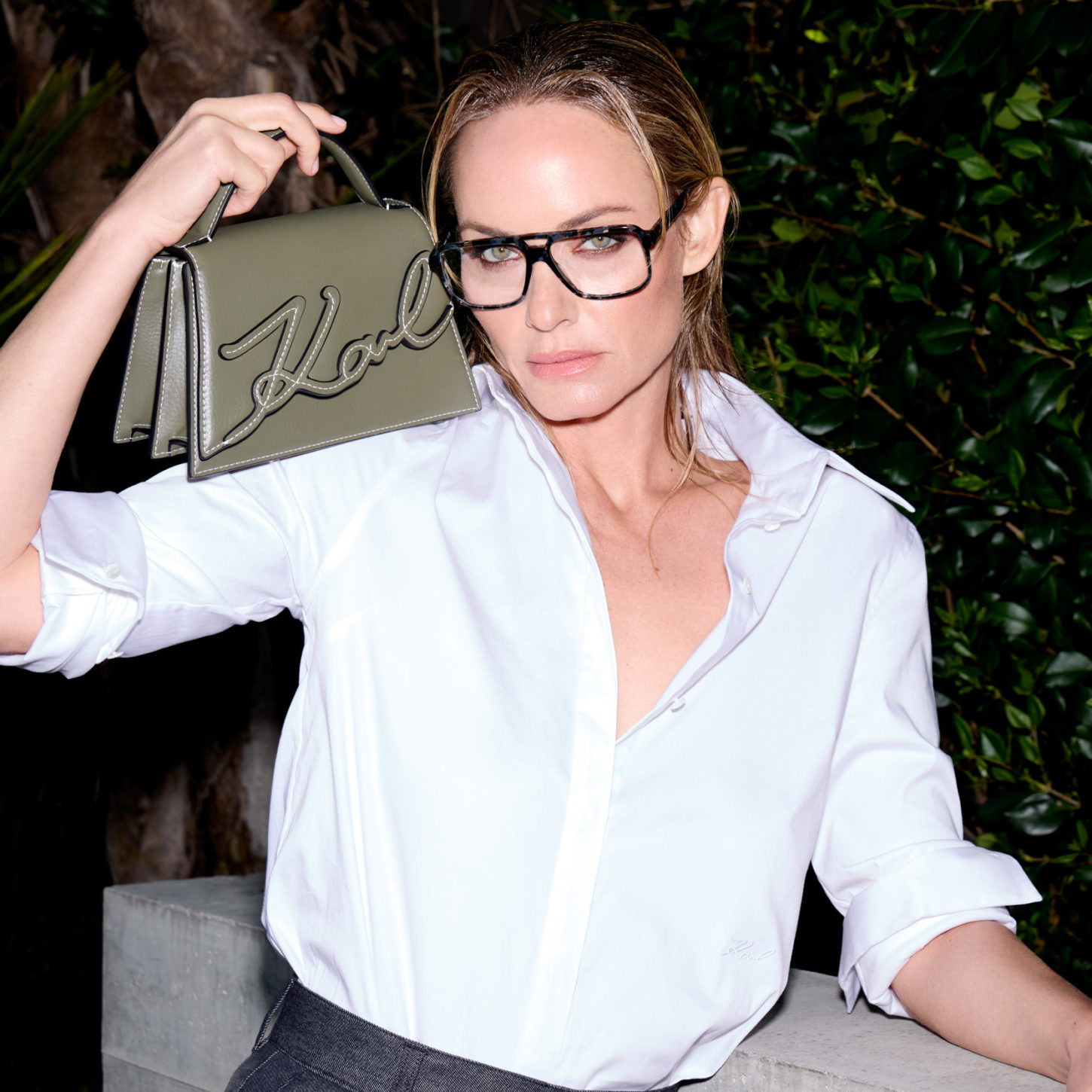April | The Profile
Earth Angel
Arizona Muse – climate activist, fashion model, and founder of DIRT charity – has found her voice as a passionate advocate for regenerative farming and soil health. It’s been a personal as well as a political transformation, she tells Sarah Bailey – and it all starts with the ground beneath our feet
Sarah BaileyWhen people ask me what I do, I tell them, I’m a climate activist. I don’t tell them I’m a model,” Arizona Muse tells me. It’s the first day of spring, the latest IPCC report warning of imminent climate collapse has just come out, and I am talking to Muse over a Zoom call, in which I can see watery sunlight streaming through a window, illuminating a halo around the 34-year-old’s famous curls. The visual is positively beatific, although there’s nothing remotely ethereal about Muse’s personal revolution, from internationally recognised fashion face to pragmatic and driven founder (in 2021) of DIRT, the charity for biodynamic farming and soil health. Both literally and metaphorically, Muse is all about getting her hands dirty.
Indeed, after our chat today, Muse will be addressing a group of influential leaders, gathered by Sacha Newall, founder of rental platform My Wardrobe HQ. Her mission will be quite straightforward: fundraising. “The reason that DIRT can’t find a value in [pure] awareness-raising… is because we support farmers all over the world. And if you’re a rural farmer in Kenya, you don’t care how many Instagram followers [anyone has]. It just doesn’t make a difference to the work that you’re doing. What makes a difference is money.”
A quick glance at the website for DIRT shows that the charity has live regenerative farming programmes running globally – from reforesting hillsides in the Philippines to growing biodynamic Egyptian cotton, and running a school farm in Nairobi. This week, the online DIRT shop launches, offering a curation of extremely chic, impeccably sourced products, from which a percentage of sales will be donated to DIRT’s live projects. The scope is impressive. And so is Muse; a careful and powerful speaker, who lands every point with steadfast aplomb (although she confesses that these oratory skills are hard-won). “If you’d asked me 15 years ago, do you think you’d become an activist and do a lot of public speaking, I would have run in the other direction and probably cried,” she says, before adding a note of advice for reticent public speakers at every stage of life: “It’s a really good exercise to take every opportunity that comes your way to do a bit of public speaking, whether it’s saying grace at a table before you eat with your family or accepting a role in a meeting at work – just practise!”
Cover image courtesy of Ezra Patchett
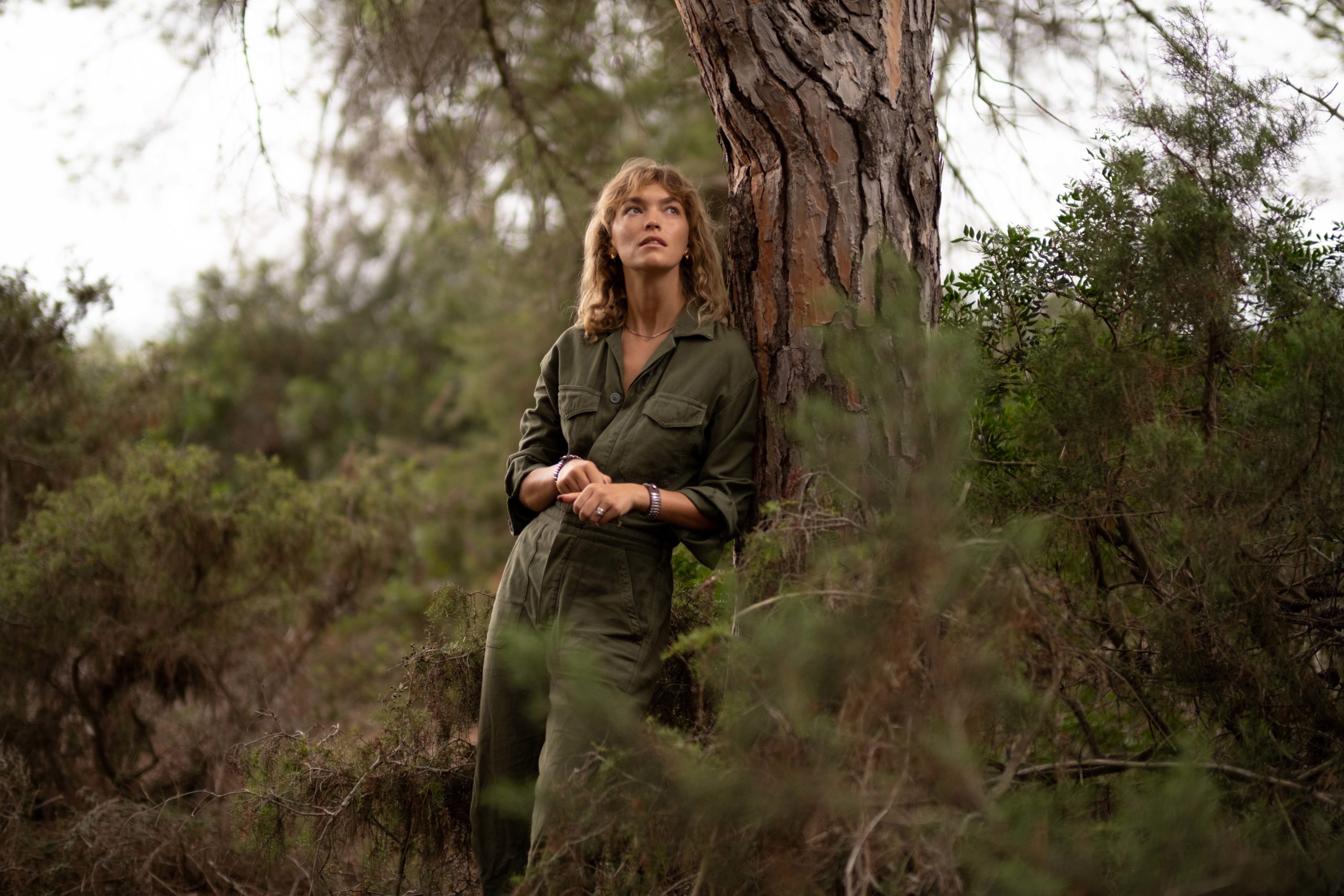
Image Courtesy of Teodora Berglund
“If you are a rural farmer in Kenya, you don't care how many Instagram followers [a charity has] it just doesn't make a difference to the work that you're doing. What makes a difference is money.”
Arizona Muse
A self-described “shy child”, Muse grew up in Tucson, Arizona, and Santa Fe, New Mexico – two areas “filled with environmentalists,” she notes wryly. As she has explained in previous interviews, one of the ironies of her life’s journey is that her younger self regarded this as “boring and normal”, seeking instead the perceived glamour and excitement of the fashion industry.
As a model, she broke through in 2010, embarking on a wildly successful career that saw her become the face of Prada, Saint Laurent, and Estée Lauder’s Modern Muse fragrance, along with countless magazine spreads and cover endorsements. Modelling has changed in the intervening years, of course. Thankfully in 2023, models with attitude, opinions and causes to champion are no longer a rarity. When I ask Muse if her voice was ever called upon at the height of her modelling career, she replies with the raise of an eyebrow: “Rarely,” she says. “Or even never.”
The vacuous nature of a fashion career without a voice had long troubled Muse, when in 2020, during the early months of the pandemic, she and her husband, the renowned integrative osteopath Boniface Verney-Carron, left London with their two children to experience life on Haye Farm, a mixed organic farm in North Devon, for seven weeks. “Wow, what an experience to really see the amount of work farmers do, the responsibilities they hold,” she says, her eyes shining. More recently, the family spent a year living in nature in Ibiza, where they deepened their knowledge of biodynamic farming (“What a community of earth regenerators, so many activists,”), though the family have now returned to England for Muse’s eldest 14-year-old son to attend school.
So, what was the trigger that set her off on her journey of personal and professional changemaking? “I suddenly realised that I didn’t know where the clothes were coming from – the ones I was wearing every day in my life and the ones I was helping to sell. And then I started educating myself and I started to learn about the fashion supply chain. I started to learn how terrible it can be and how much abuse and exploitation there is both to humans and the planet… Once you start learning these things, you can never go back,” she says.
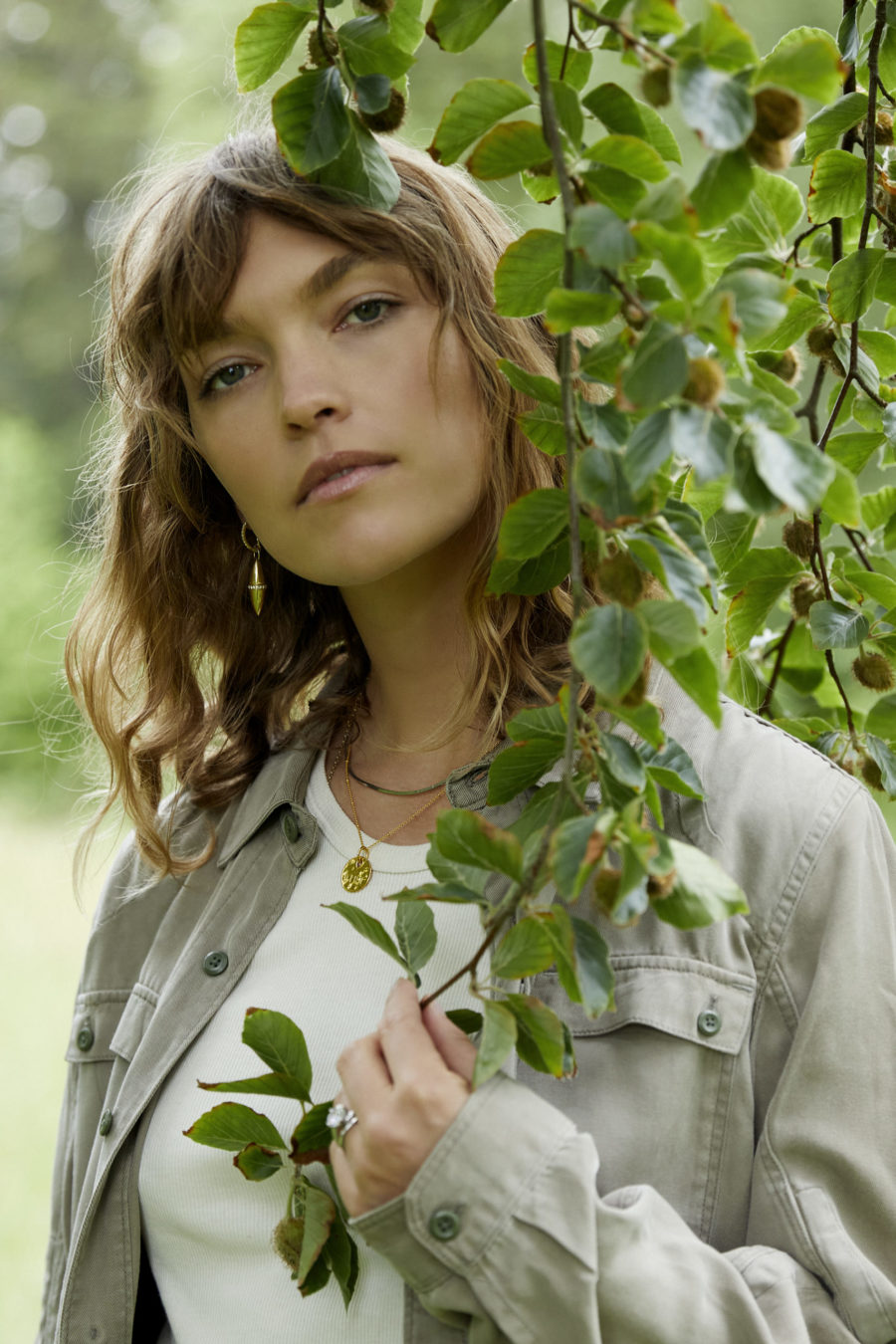
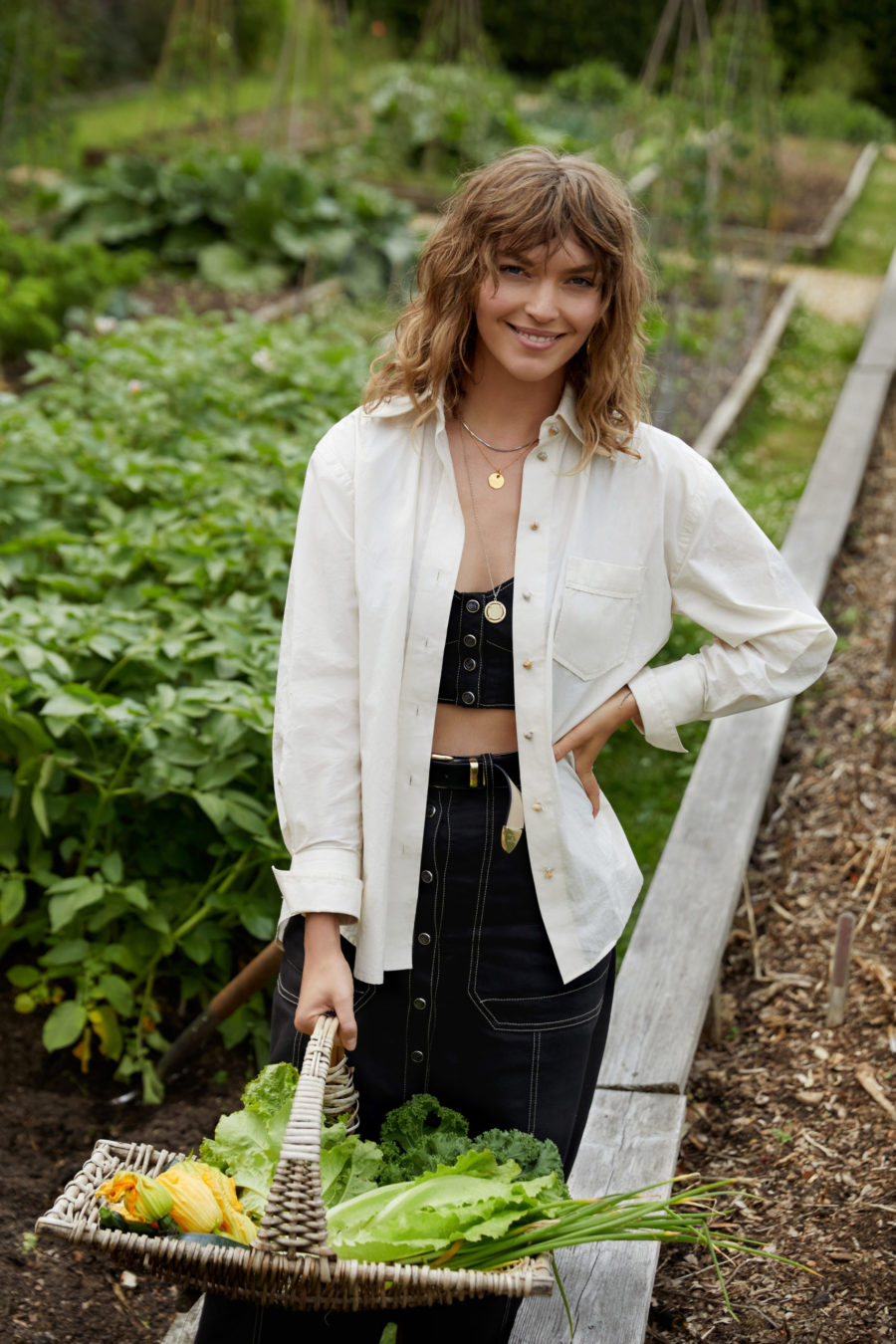
Images courtesy of Helene Sandberg
The primacy of soil, agriculture and farming in the fashion supply chain will be DIRT’s key message this Earth Day (the 22nd of April). “We are going to be talking about soil as the foundation of the fashion industry. All our clothes – unless they are polyester or petrochemical based – are grown in soil for us by farmers. And so we deserve to treat farmers differently, pay farmers differently. It’s our responsibility to do so.”
Muse is appalled by the grinding, market-based business model that farmers have to endure, with all its inherent meteorological, not to mention geo-political, risk and insecurity. “It makes me really sad that this is what we do to a demographic of people, and tragically it has a huge toll on their mental health. Farmers are committing suicide at higher rates than any demographic in every country in the world.” She also wants to emphasise that not only do we need to be paying attention to the sustainable and fair farming of raw materials, we also need strategies and actions to address the end-of-life cycle of our garments and accessories. In short, the fashion industry and our governments urgently need to talk about compost.
“All those little infographics that I see about circularity, all the talks I have listened to, I have not once heard anyone say ‘composting’,” she groans. “We are all obsessed with recycling – it’s only one piece of circularity; one bit of the circle.” As she points out, clothing that is manufactured in such a way that they do not contain toxins for the microorganisms that live within the soil, can return to earth without damage – they can even enrich it.
I’ve seldom met a more avid champion for self-education than Muse. “There are so many books, podcasts, documentaries… I absolutely love absorbing information.” The books on her current reading list? Humankind: A Hopeful History by Rutger Bregman, Braiding Sweetgrass by Robin Wall Kimmerer (“transformational for me”), and Defending Beef: The Case for Sustainable Meat Production by former environmental lawyer turned rancher Nicolette Hahn Niman. “Many of us are misunderstanding that cattle and other livestock have a horrible impact on the earth, and it’s just not true. They don’t. They’re actually really restorative animals. It’s just the way we humans farm them that is causing problems.”
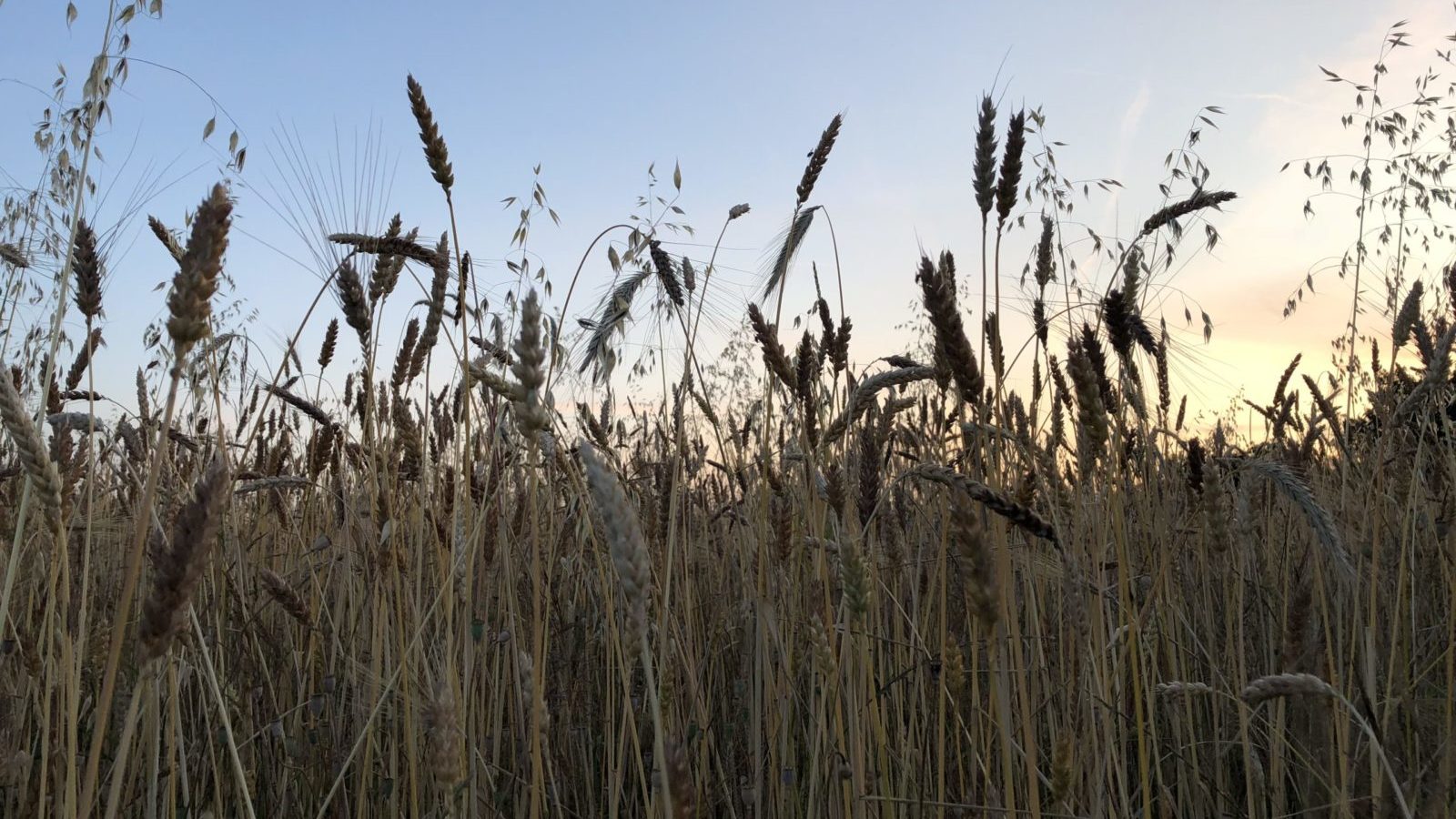
Waltham Place biodynamic farm
Of the mentors and teachers who have inspired her are Nina Marenzi of The Sustainable Angle and Orsola De Castro, founder of Fashion Revolution, “who really inspired me and took me under their wing and nurtured me as I learned and as I started this journey into activism. I’m so grateful… It is really amazing to be lifted up by the people who came before you,” says Muse. “My activism would never be possible without the ones that were doing the work 30 years ago. It’s really moving to think about this, because they really changed the space. There’s a new wave of activism. It’s gentle, it’s compassionate, it’s helpful, it’s thoughtful, but we needed the activism before that was much more aggressive, much more… running in the streets, being angry, true disruptors… But it doesn’t have to be like that any more.”
I first became aware of DIRT’s impact in the autumn of 2021 with the launch of the Anya Hindmarch x DIRT Return To Nature collection, when the designer set herself the challenge to procedure a good-looking, luxurious leather bag with no harmful chrome tanning, lining or hardware, and that could biodegrade at the end of its useful life. (Incidentally, I’ve been using my RTB Crossbody for nearly two years now and have no intention of sending it to the compost heap any time soon – I love it!).
What does Muse think about the luxury sector’s efforts in sustainability more generally? “Right now, luxury is talking about sustainability. Five years ago they were not, so that’s cool, good progress. However, talking about sustainability is different from being sustainable. When you’re talking about what you might do in the future, your ambitions, your targets, without telling us any decent, true, basic information about what you’ve already done, then you’re greenwashing,” she says bluntly.
She cites Stella McCartney and Chloé as a couple of notable exceptions from the above, and is also fulsome in her praise of the game-changing materials science company Pangaia as a shining example of what genuine innovation in the fashion supply chain can look like. She refuses to give up hope, believing that with real, meaningful change – i.e. an end to deliberate overproduction, making things that can go back to the earth and rebuild soil health, and crucially supporting people all along the supply chain – fashion can redeem itself. It all comes down to conscious, transformational leadership.
“I think a lot about leadership,” she says. “And as a leader, I definitely don’t get it right all of the time. But I don’t like to micromanage. I like to really trust my team – they know so much; they are so amazing… And when they are trusted, they do better work, more confident work. I feel like the leadership role is to choose, to choose to uplift, choose to support, choose to create a culture, where everyone is having fun and loves what they are doing… so they can fly.”
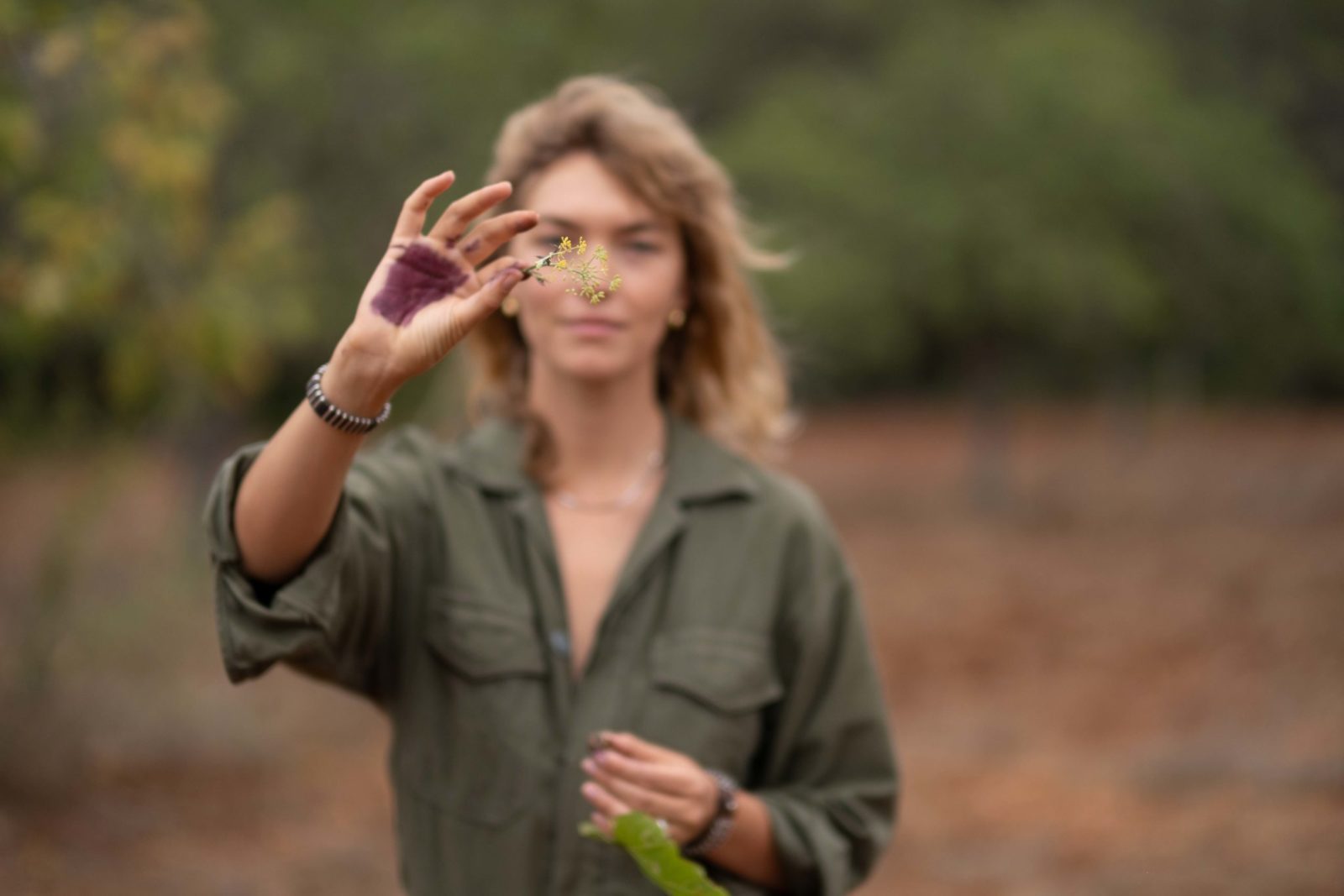
Image courtesy of Teodora Berglund
“Choose to uplift, choose to support, choose to create a culture where everyone is having fun and loves what they're doing… So they can fly.”
Arizona Muse
It’s impossible to talk to Muse and not feel the imperative to change. And for those of us who are not politicians or business leaders, what can we do better today, tomorrow and next week? “There’s so many things to be done and it’s quite exciting when you get on the journey,” she replies. “Start with your home, start with the things you buy and whenever you buy anything – pause. Firstly, do you need it? Second, is it new or is it secondhand? If it has to be new and if you really need it, do a little more research and find a business who is doing things better, who is choosing things consciously, who is paying their workers fairly. This makes a huge difference in the world and to all those little businesses, they really appreciate it when someone takes a little extra time to find them and buy their products. And use your voice. Communicate with your government, talk to them about what is going on, find out about campaigns that are going on, sign petitions – all of it really does help.”
Despite the dire state of the world (Muse thinks the devastating IPCC report underplays the current emergency: “The IPCC stays on the safe side of what they know”), she clings on to optimism. “And the reason is because every day I am in touch with people all around the world who are climate resilient – farmers who grow things biodynamically in a way that regenerates the soil, builds biodiversity, increases water retention and absorption, meaning there are fewer fires. It’s so big what agriculture can offer us when done right. And I am optimistic that we can make the changes that need to happen urgently, like the subsidies needed to start incentivising better farming practises in a great way, not a small way.”
“We need to invite all the voices to the table to make decisions and we still don’t do that,” says Muse. “I follow fringy, radical farmers and I know they don’t get to have an opinion on the new bills that are being written about agriculture. Instead, it’s the chemical companies who are always at the table. I’m not saying we should dismiss them from the table, but we should invite everyone there.”
Oh, to have more voices like Muse’s in the leadership of our national conversation. Who could resist her call for a gentle, generous revolution?
“We’re now in a new era, where activism is about self-care,” she says. “It’s about looking after yourself, so that you can be more powerful looking after others and the earth… It’s a beautiful space to be in. So I do feel very comfortable when I invite anyone into the space of activism.”
She smiles that beatific smile again. “It’s more exciting to live this way. It’s more fun to have a purpose… Weirdly, it’s way more fun than going to fashion parties.”
